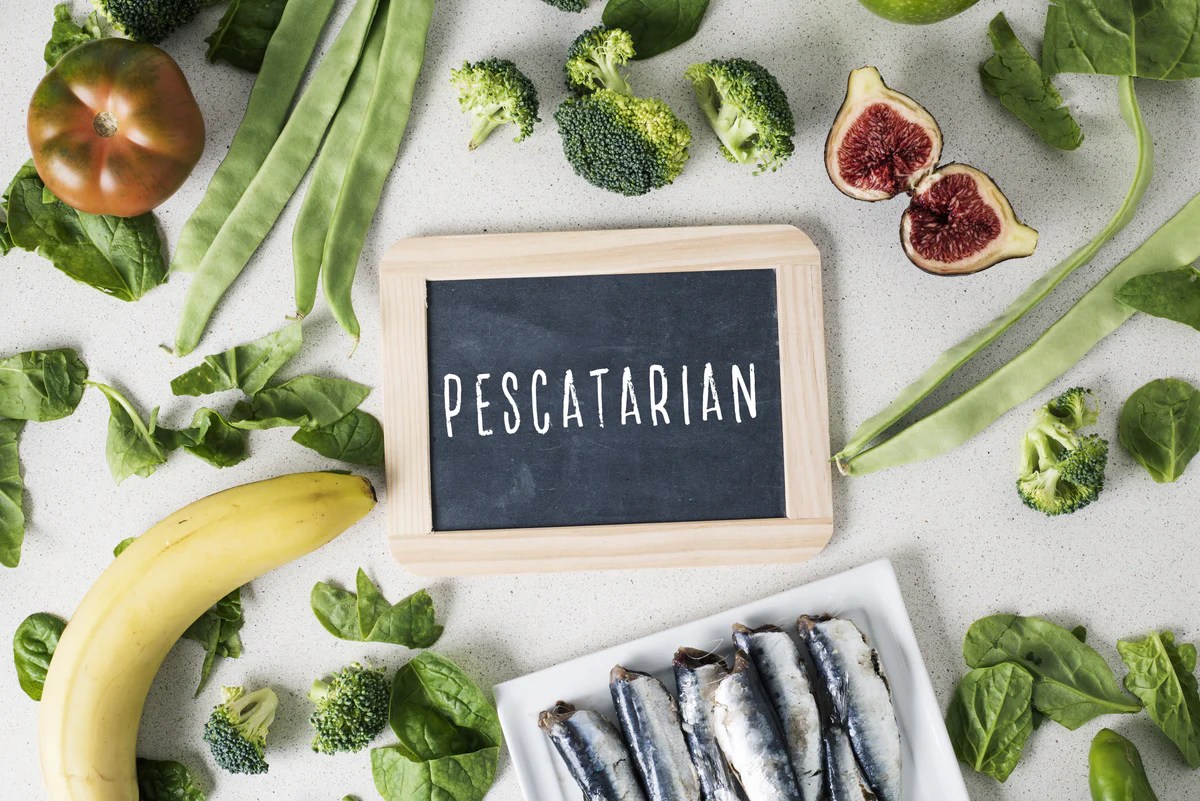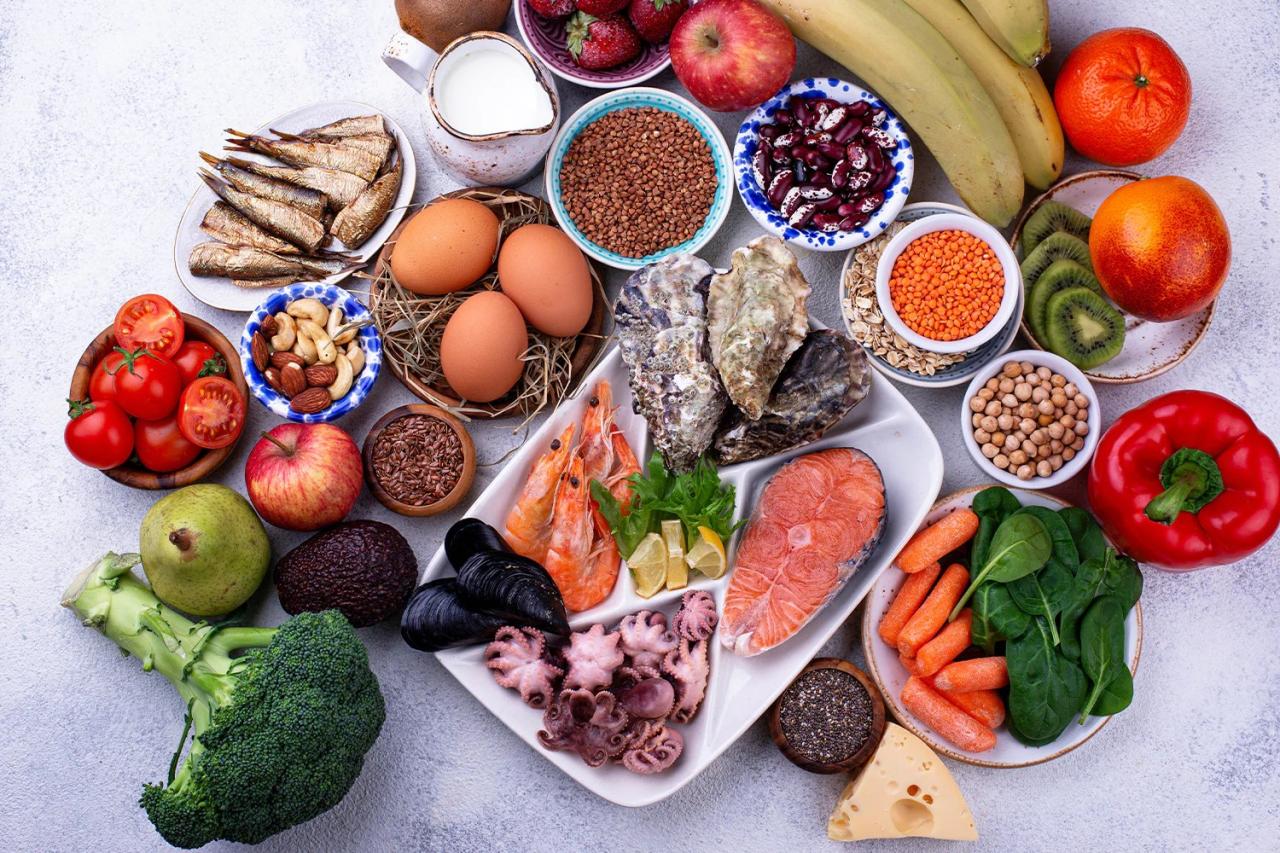As the pescatarian definition gains prominence, we embark on a culinary journey that harmoniously blends the goodness of seafood with the principles of a plant-based lifestyle. This unique dietary approach offers a wealth of health benefits, making it an increasingly popular choice among health-conscious individuals.
A pescatarian diet primarily consists of fish and other seafood, along with plant-based foods such as fruits, vegetables, whole grains, and legumes. Unlike vegetarians who abstain from all animal products, pescatarians enjoy the nutritional benefits of fish while still adhering to a predominantly plant-based diet.
Definition of Pescatarianism
Pescatarianism is a dietary pattern that involves consuming fish and seafood, while excluding meat and poultry. The term “pescatarian” is derived from the Italian word “pesce,” meaning fish, and the Latin suffix “-arian,” indicating a person who follows a particular diet or practice.
Pescatarians typically include a variety of fish and seafood in their diets, such as salmon, tuna, shrimp, and mussels. They may also consume dairy products, eggs, and plant-based foods like fruits, vegetables, legumes, and whole grains.
Comparison to Other Dietary Patterns
Pescatarianism falls between vegetarianism and veganism in terms of dietary restrictions. Vegetarians abstain from all meat, including fish and seafood, while vegans exclude all animal products, including dairy, eggs, and honey.
If you’re considering adopting a pescatarian diet, it’s essential to ensure you’re consuming a wide range of nutrient-rich foods. A pescatarian diet food list can help you make informed choices and ensure you’re getting the necessary vitamins and minerals from plant-based sources and seafood.
Pescatarians share some similarities with vegetarians, such as the emphasis on plant-based foods and the avoidance of meat. However, they differ in their inclusion of fish and seafood, which provides additional sources of protein, omega-3 fatty acids, and other nutrients.
Pescatarianism, a semi-vegetarian diet, offers a wide array of food options for those who abstain from meat but indulge in seafood. Explore our comprehensive pescatarian diet food list to discover the diverse range of pescatarian-friendly foods that provide essential nutrients and promote overall well-being.
Health Benefits of a Pescatarian Diet

A pescatarian diet offers a myriad of health benefits, with research consistently linking fish consumption to a reduced risk of chronic diseases and improved overall well-being. This dietary approach, which includes fish and seafood while excluding other types of meat, provides a rich source of essential nutrients that contribute to optimal health.
One of the key benefits of a pescatarian diet is its ability to lower the risk of cardiovascular disease. Fish is a rich source of omega-3 fatty acids, which have been shown to reduce inflammation, improve blood flow, and lower blood pressure.
Studies have found that individuals who consume fish regularly have a significantly lower risk of heart attacks, strokes, and other cardiovascular events.
Role of Fish Consumption in Reducing Chronic Disease Risk
- Reduced risk of cardiovascular disease due to omega-3 fatty acids
- Lowered risk of stroke and heart attacks
- Improved blood flow and reduced inflammation
Nutritional Value of Fish and Seafood
Fish and seafood are excellent sources of high-quality protein, providing essential amino acids that are necessary for building and repairing tissues. They are also rich in vitamins, minerals, and antioxidants, including vitamin D, selenium, iodine, and zinc. These nutrients play vital roles in maintaining bone health, immune function, and overall well-being.
- High-quality protein for tissue repair and growth
- Rich in vitamins D, selenium, iodine, and zinc
- Supports bone health, immune function, and overall well-being
Challenges and Considerations for Pescatarians
Embracing a pescatarian lifestyle offers numerous health benefits, but it also presents certain challenges and considerations. Navigating these obstacles is crucial for transitioning to and maintaining a fulfilling pescatarian diet.
Finding Suitable Food Options
One of the primary challenges faced by pescatarians is finding suitable food options, especially when dining out or traveling. Many restaurants and food outlets may not have a wide selection of pescatarian-friendly dishes. To overcome this, pescatarians should research restaurants beforehand and consider carrying snacks or meals when traveling.
Tips for Transitioning to and Maintaining a Pescatarian Diet, Pescatarian definition
- Start gradually by incorporating fish into your meals a few times per week.
- Explore diverse fish varieties and cooking methods to prevent boredom.
- Be open to trying new recipes and experimenting with different flavors.
- Plan meals ahead to ensure you have healthy and satisfying pescatarian options available.
- Seek support from friends, family, or a registered dietitian if needed.
Ethical and Environmental Considerations
Pescatarians must also consider the ethical and environmental implications of fish consumption. Concerns arise regarding overfishing, habitat destruction, and bycatch. Choosing sustainable seafood options, supporting ethical fishing practices, and reducing overall fish intake can help mitigate these impacts.
Sample Pescatarian Meal Plan: Pescatarian Definition
A pescatarian diet offers a wide range of nutritious and flavorful options. To help you get started, here’s a comprehensive meal plan that demonstrates the variety and balance of this eating style.
This meal plan includes recipes or meal ideas for breakfast, lunch, dinner, and snacks, ensuring you meet your nutritional needs throughout the day.
Breakfast
- Oatmeal with berries, nuts, and chia seeds
- Yogurt parfait with fruit, granola, and honey
- Scrambled eggs with smoked salmon and avocado toast
- Whole-wheat toast with peanut butter and banana
Lunch
- Grilled salmon salad with mixed greens, quinoa, and vegetables
- Tuna sandwich on whole-wheat bread with lettuce and tomato
- Lentil soup with a side of whole-wheat bread
- Leftover salmon from dinner with brown rice and steamed broccoli
Dinner
- Pan-seared tilapia with roasted vegetables and quinoa
- Baked salmon with lemon and dill, served with roasted asparagus
- Shrimp scampi over whole-wheat pasta
- Vegetarian chili with cornbread
Snacks
- Fruit (apples, bananas, berries)
- Vegetables (carrots, celery, cucumbers)
- Nuts and seeds
- Yogurt
Final Summary

In essence, the pescatarian definition represents a balanced and sustainable approach to nutrition that combines the best of both worlds. By embracing the health-promoting properties of fish and seafood while minimizing the environmental impact of meat consumption, pescatarians can reap the rewards of a nutritious and ethical dietary lifestyle.
Popular Questions
What is the main difference between a pescatarian and a vegetarian?
Pescatarians include fish and other seafood in their diet, while vegetarians abstain from all animal products, including fish.
Are there any health benefits to following a pescatarian diet?
Yes, research suggests that pescatarians may have a lower risk of heart disease, stroke, and certain types of cancer due to the consumption of omega-3 fatty acids found in fish.
Is it difficult to transition to a pescatarian diet?
No, many people find it relatively easy to transition to a pescatarian diet, especially if they gradually incorporate fish and seafood into their meals.